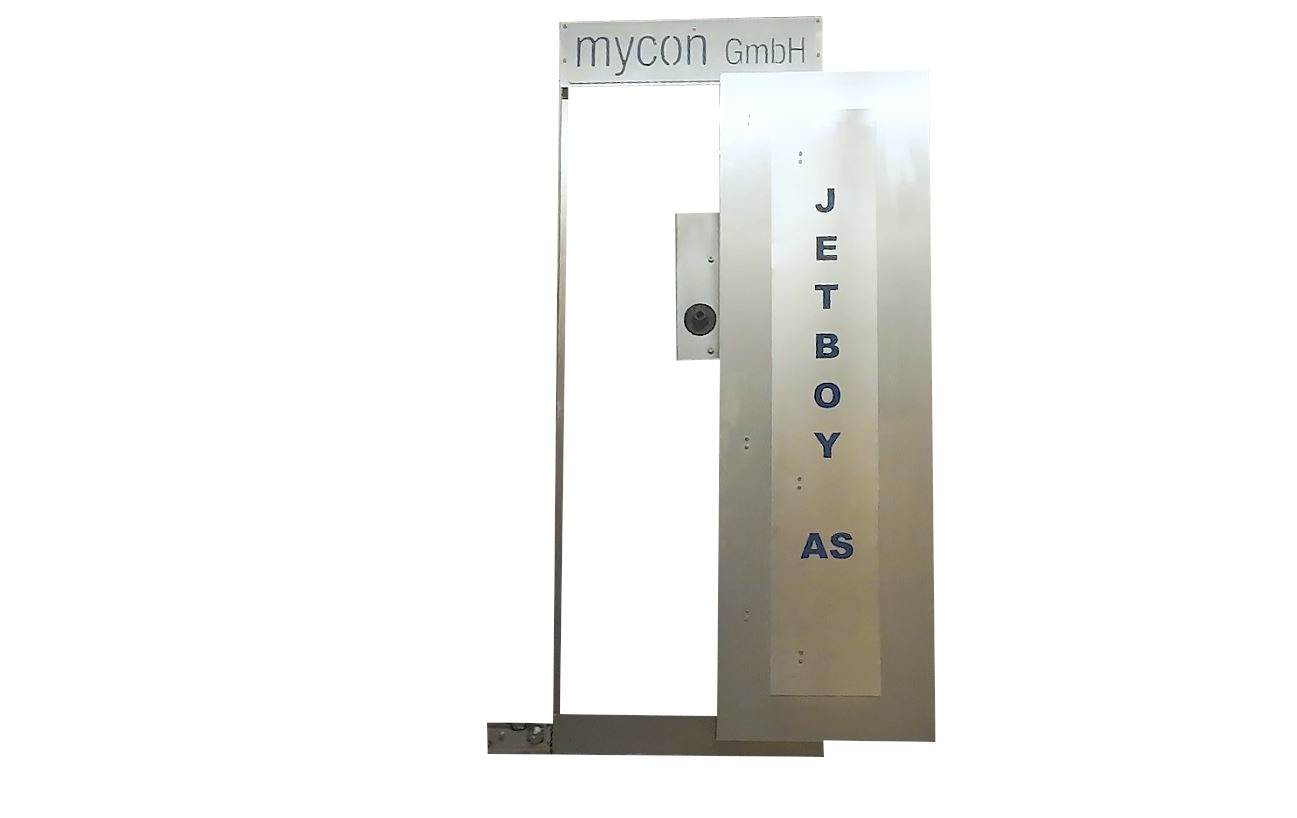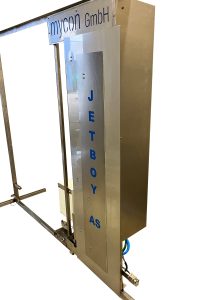
JetBoy AS – robust, fast, and easily installable worldwide
Specifications
- Application: Automated cleaning for smaller heat exchangers
- Water consumption: 0.1 lit/min
- Compressor air flow: 420 lit/min
- Pressure: 6-7 bar
- Cleaning Depth: Up to 250 mm
- Noise Level: 80-100 dB
A reduction in energy consumption of up to 30% saves money, reduces environmental impact, and extends the lifespan of equipment. Automated cleaning processes for heat exchangers relieve employees from hard physical work and reduce cleaning times.
Mycon offers automation solutions for almost all mycon devices. For the cleaning of finned heat exchangers, mycon has been offering a fully automated and electronically controlled solution called JetMaster AS for years, which, however, is only used for the automated cleaning of large exchanger surfaces due to the relatively high investment costs.
Mycon is now closing the gap for the automated cleaning of smaller heat exchangers with the development of the new exclusively pneumatically operated cleaning system JetBoy AS.
- Enables cost-effective automated cleaning of smaller heat exchangers. JetBoy AS can be used for exchanger surfaces of approximately 1-200 square meters. Only one interface: the fully pneumatic control is robust and cost-effective. JetBoy AS can be used with jet nozzles with jet widths of 50-150mm. Depending on the size of the jet nozzle, JetBoy AS requires an air volume of approximately 2.5 – 6 cubic meters per minute and a water volume of approximately 0.30 – 1.00 liters. Accordingly, the resulting wastewater volume is low.
- Flexibility and versatility: Pneumatic systems allow greater flexibility in installation and application since they are not tied to an electrical power source. This facilitates integration into various systems and environments.
- Lower operating costs: Pneumatic systems generally require less maintenance and have lower operating costs compared to electrical systems. They have fewer moving parts that can wear out and are less prone to failures due to electrical disturbances.
- Safety: Since pneumatic systems are not electrically operated, there is a lower risk of electrical malfunctions or short circuits. This contributes to the safety of the system and operating personnel.
- Environmental friendliness: Pneumatic systems often have lower energy consumption and a smaller CO2 footprint compared to electrical systems, especially when operated with compressed air generated from renewable energy sources.
- Robustness and reliability: Pneumatic systems are generally more robust and reliable since they are less susceptible to moisture, dirt, and extreme temperatures. This makes them particularly suitable for harsh environments or industrial applications.
- Easy control and integration: Pneumatic systems are often easier to control and integrate into existing systems since they require less complex control systems and are compatible with various control technologies.
Overall, a purely pneumatic automated cleaning system for heat exchangers offers a cost-effective, reliable, and environmentally friendly solution for cleaning and maintaining heat exchangers in various industrial applications.

